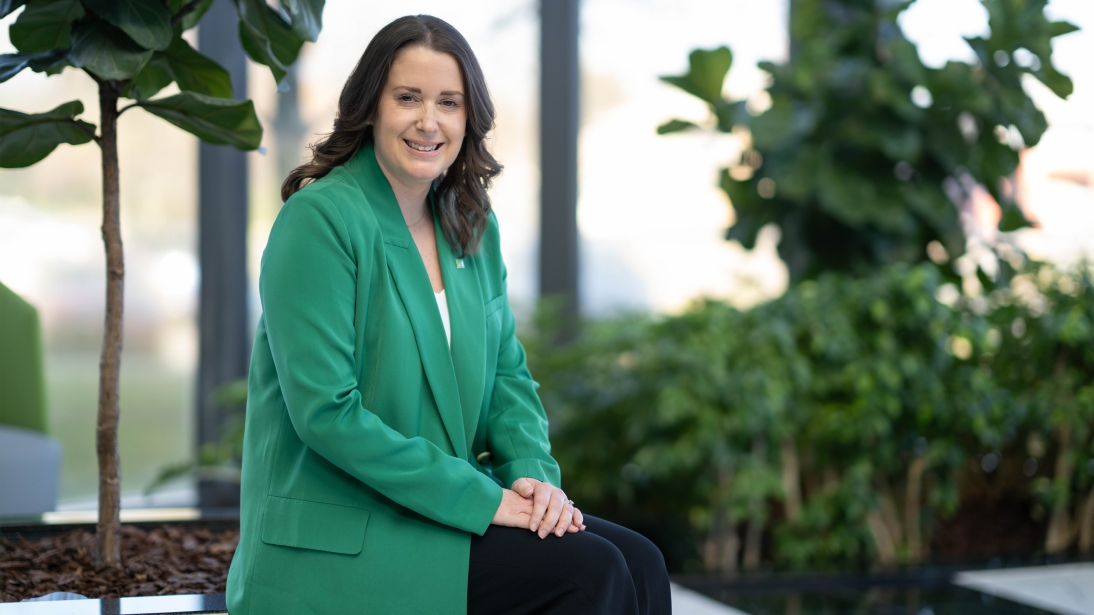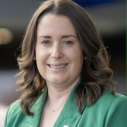"Erin, your mother has been in an accident, and we don't know if she's going to make it."
That was the way my father started the phone call that would change my life. It was 2016, and he was calling from three provinces away. My mother had been in an accident, and while we didn't know it then, that one event would change not only her life, but lives of everyone around her.
For the next five months, her life was a terrifying blur of ambulance rides, surgeries, and long stays in hospitals in both Nova Scotia and New Brunswick. While the details of her story aren't mine to share, the result is that my mother now identifies as a person with a disability and uses a wheelchair.
As someone who has worked in the disability space for several years prior to my mother's accident, I was in a unique position to help my parents with the upheaval it caused. I was fortunate enough to be able to provide both hands-on support and accommodations advice, but seeing how this experience has changed their lives caused me to look at the world from a fresh perspective. I began to notice how different the world now was for my mother; how inaccessible, complicated, and unfamiliar it had become.
It cast my work in a whole new light.
While my mother is the same amazing person she has always been, my mother's disability and her reliance on a wheelchair had a profound impact on my parents' day-to-day lives. They were forced to move out of the two-story home where I had grown up, and relocate to a wheelchair-friendly, accessible one-story home. Travelling became more complicated, and they couldn't go out to eat at the same restaurants they used to enjoy, because some of those places weren't accessible for my mother and her wheelchair.
The reality is, disability is something that can happen to anyone at any time – either permanently or temporarily. My mother's disability gave me a new perspective on the role that I play at work, but it showed me we all need to do more to help promote inclusion at work and in society.
Advancing disability inclusion
In my role, I find it helps to keep my mother and my family's experiences top of mind and close to my heart as I work to educate our colleagues across the enterprise and help improve accessibility for all our colleagues, customers, and communities so that everyone feels welcome and supported to participate and contribute.
I know that I'm a connector between our colleagues with disabilities, the wider disability community, and the Bank, and I'm grateful to have been a part of, and had a front-row seat to, how TD has progressed on disability inclusion over the last 12 years.
In that time, TD has marked several milestones as we work towards making banking and financial services more accessible for people with disabilities. Earlier this year, we became the first Canadian bank to introduce a dedicated phone line for customers who are Deaf and use American Sign Language (ASL) or Langue des Signes Québécoise (LSQ) , we launched a new accessibility tool to help make online user experiences more accessible to our customers, and we worked with Accenture to create a program that factors in disability inclusion across marketing and communications on a global scale.
Our role in helping to evolve perceptions
Government statistics show that one in four Canadians and Americans live with some form of disability. But we can't leave it up to those with disabilities to be the sole voices of education and advocacy; it's up to all of us to do what we can to promote inclusion and understanding, something often referred to as active allyship.
For me, active allyship takes the form of participating and contributing to our colleague community groups and attending events to learn more about the disability community and create new connections. I do my best to take what I learn from the disability community and advocate for change to improve the programs and processes that are causing issues or creating difficulties for the community, both at work and outside of work.
What I have learned from these experiences, is that one of the biggest misconceptions we all need to help correct in this space is that disability is a negative word.
While the disability community is diverse in experiences and perspectives, in the wider community and here at TD, we've learned that "disability" and "disabled" are not words to be avoided and replaced with euphemisms. In fact, like my mother, many embrace that aspect of their identity. When we avoid using these words, we fail to reject ableism and the misconception that disabled people are inherently inferior to non-disabled people.
There remains much to be done in removing barriers to access for people with disabilities and to improving perceptions around the strengths, skills, and value of people with disabilities.
While I am so proud of all the work that is being done and all the progress TD has made in the disability space, I think it is essential that we continue to get input from people with lived experience and move forward intentionally to help further elevate our processes and expectations to always consider accessibility from the start.
Disability can affect all of us, whether now or later in life, temporarily or permanently, directly or, indirectly through the people we love. It is the responsibility of all of us and it benefits all of us to drive accessibility, equity, and inclusion for everyone.

